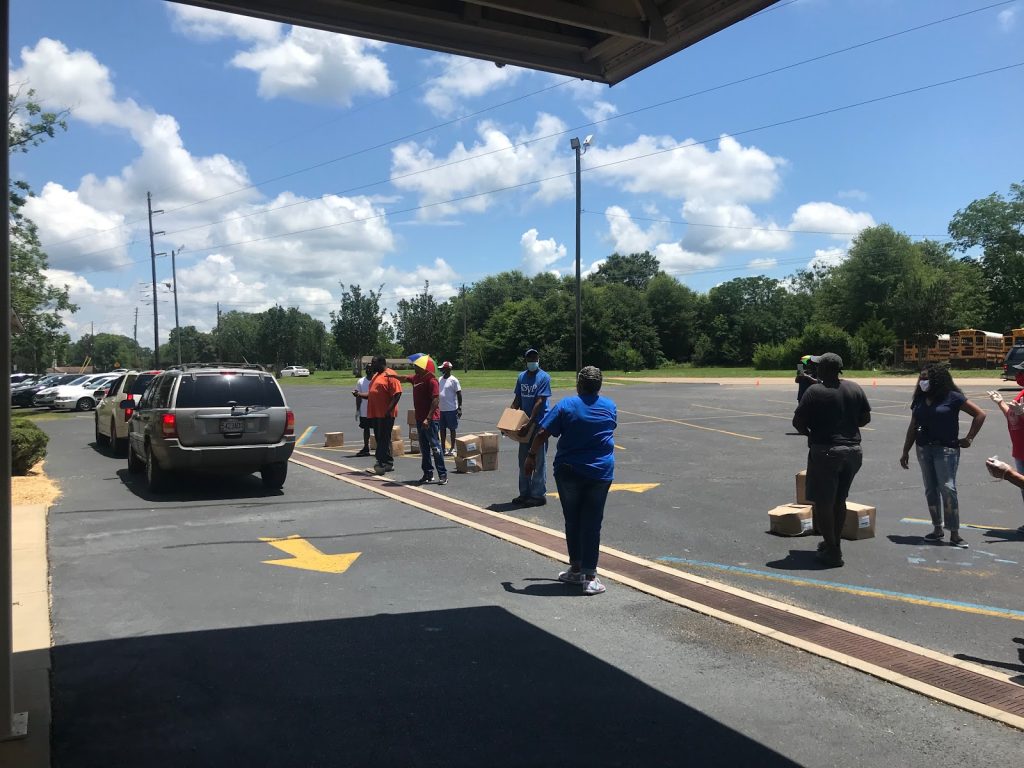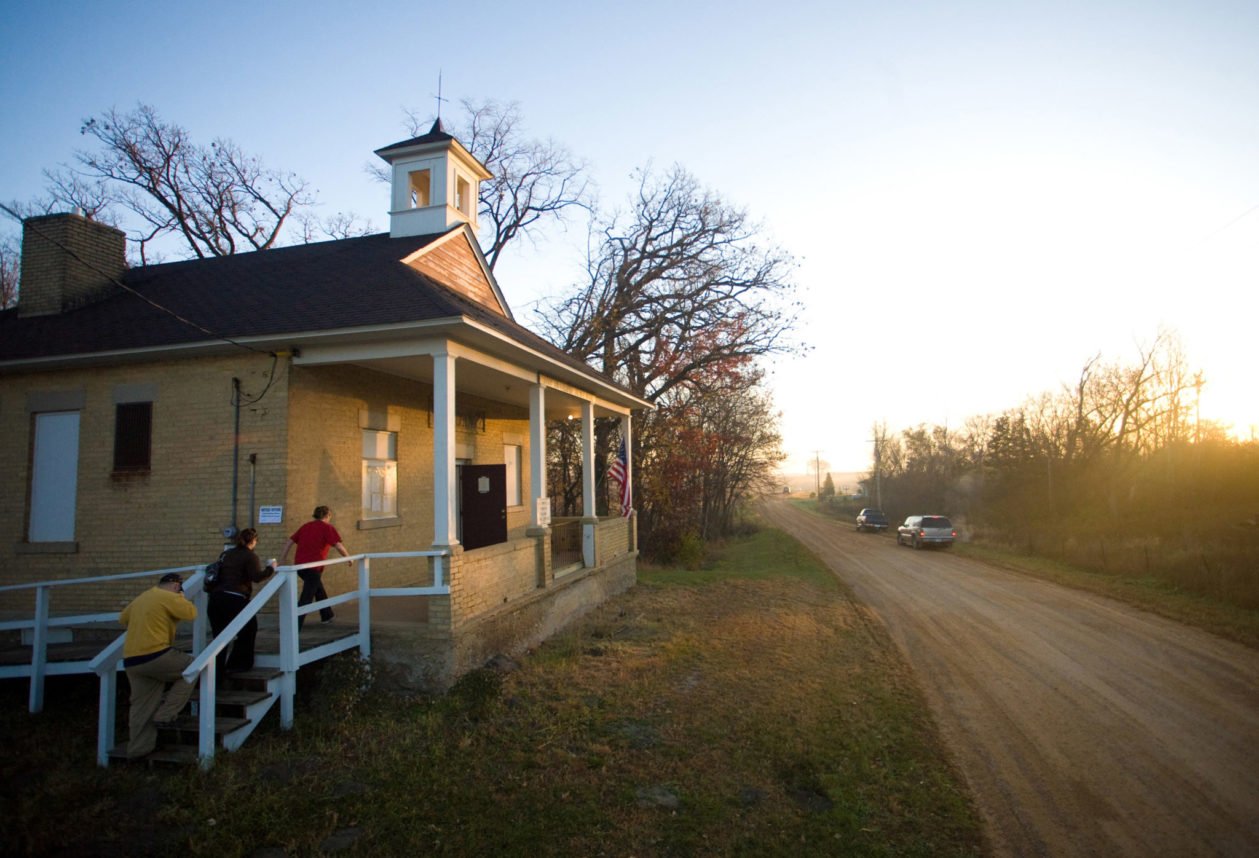Entrepreneurship often thrives in cities and urban areas, as a result of access to ecosystems, networks and capital in those locations. Often overlooked are businesses and not-for-profits working on solving problems in rural, small town and Indigenous communities across America. Rural organizations and not-for-profits that support local businesses, programs and initiatives are also severely underinvested in, even while having the insight and tools they need to survive and thrive. Systemic barriers need to be tackled and addressed when it comes to access to investments and funding in rural organizations to build the capacity of the organizations and give them room to tackle the large issues they’re addressing in the communities.
There are racial biases that currently exist in philanthropy, and it’s hindering the work of many Black leaders to support their communities, especially when it comes to rural communities. Shedding light on the work of these organizations is important to amplify their mission, and to dismantle misconceptions and perceptions that these efforts do not exist. They do, in fact, exist, and they’re necessary to create the positive change and impact that we wish to see in America, especially as COVID exacerbates these inequalities.

Deep in the Black Belt region of Alabama is an organization that’s working hard on fighting those inequalities in the community, the Black Belt Community Foundation, (BBCF), a nonprofit organization whose purpose is to work with citizens to help improve the quality of life in a region that stretches from Mississippi to Georgia. BBCF’s work focuses on three areas: giving, receiving and growing.
The Black Belt, from a geographical perspective, is a band in the south-central portion of Alabama which connects to the Black Belt of Mississippi, the Black Belt of Georgia, the Black Belt of the Carolinas—all of the Southeast. It’s a really rich area of fertile dark black rich soil and the same location where the huge cotton plantation started in the Old South.
This context is vital in our understanding of the philanthropic work that’s being done by BBCF, its staff and team for their community. “That was the seed of the Confederate power that the rich landowners that controlled all the state governments at that time and they owned all these huge plantations. And that’s where most of the slavery operation was set and population was centered to work,” says Daron Harris, PR director of the Black Belt Community Foundation.

Worth recently had a chance to speak with Felecia Lucky, president of the Black Belt Community Foundation, and Harris, who also serves as project co-director for BBCF’s Truth, Racial Healing & Transformation (TRHT) Selma program. We discussed how the foundation is working closely with its own community through efforts and initiatives to support businesses and individuals during this time of COVID-19.
Q: How has the foundation been impacted by COVID-19?
Felecia Lucky: We’ve had to really just re-align everything, according to where we are at this moment. Our initial plans to start off 2021 did not include COVID-19. Our philosophy, through the work as a nonprofit, has been to work with organizations. But we found ourselves during COVID-19 being in a place where there were immediate needs by individuals, and we needed to meet those needs. Staffing who were assigned to one piece of the work had to be repurposed to do other types of work. That’s been one big change for us. We’ve also seen an influx in contributions in our grid in our receiving grants, as a result of us being in a position to help distribute those to communities. As a result, our grant making definitely tripled this year.
What are some of the criteria you use to prioritize grant giving to community organizations and individuals?

FL: Immediately when COVID hit, we began to reach out to our constituencies. So, one of our biggest ways that we serve our community, and it was always a part of our establishment, is the work of our community associates. And those are grassroots community leaders who are on the ground and represent five to 10 in each of the 12 counties that we serve. Those individuals always help us shape the direction where we will go and what we will do. We don’t really ever make a move without hearing from them.
So, we initially reached out to them and did some surveys to understand the needs of the communities and based on what we received back from the survey is how we responded. When we heard back from the surveys, we learned that some people needed food. Some people needed access to medicine, some people needed to be able to pay their rent and utilities. We heard from a lot of folks what their needs were.
Additionally, we also administer the Head Start Program that is funded through the federal government, and we offer Head Start in four of the 12 counties that we serve. We also did surveys with those families and asked what their needs are, and so we heard from the community where their greatest needs were. And then we did this over a period of time. Because week one of COVID-19 was drastically different from the third month of COVID or the fourth month. We send out the surveys at different times to assess the needs, where the changes were. And then, we adjusted based on what the community needed.
Daron Harris: We also did artist relief, [an] arts relief effort, which is one of our program areas. We worked with the State Arts Council, making on-the-ground assessments about what kind of emergency relief, because the arts and creative pursuits in the city were largely impacted, unable to do gallery openings anymore, or concerts, live events. Another program is the racial equity racial healing program, which is called Truth, Racial Healing and Transformation. We did an emergency round primarily focused on small businesses and small minority-owned businesses in Selma, Dallas County. We did that right at the beginning of the pandemic. We all did that in one kind of synergistic way. Felecia’s such a great leader; she called on all of the arms of the foundation to provide information to come back to us centrally, to make an assessment of what all the different programs we’re aware of, how the program partners were being affected, so that grants could be targeted more specifically to those areas.
What are some of the challenges you face being a Black-led not-for-profit organization?
FL: There was a report that was released not long ago about the lack of investment in Black-led organizations and institutions—that we’ve really been severely underinvested in. That is indeed a challenge. Our foundation has taken the task to connect into these CARES Act funds, without an additional line item. And I don’t have a huge endowment that we are paying salaries off of; I have to raise for operations every single year. We’ve been in existence now for 16 years, we did not start with a huge donation, and we have yet to receive a million-dollar gift. We’re working on cultivating this.
It suffices to say that we are working in a region that inherited the avalanche of problems that started back from the time of slavery. When the Civil War happened and destroyed the southern economies, and as a result of violence, displacement from the war, we have a displaced population and rural communities that have a lot of poor folks that have been fending for themselves, since 1865 to this day. This history has been compounded over all these years. We address it to try to fight against poverty and lack of education access, lack of health care and other necessities in the community.
And so, it takes time to build that up. But when you think about 40 percent of the wealth in the Black Belt, that was in the hands of more of the white slave owners, was then passed on to their family. Many of the white families have these resources. And it is not as easy to invest in an organization that’s led by Blacks, and particularly by a Black woman, but we’re working on that, working to change that narrative, but it is not for the faint of heart, I can tell you that.
During a recent panel on Rearchiteching the Future Through Philanthropy and Social Entrepreneurship, you mentioned your work with local farmers markets and food systems and a focus on farm-to-school to create an ecosystem. Can you share a bit about this work and how that’s impacting food security in your area?

FL: Livingston has a population of around 3,500 people about 10 miles away and neighboring York, their population is around 2,000; there is not a grocery store present at all. There are really huge food deserts throughout the Black Belt, and this county that I live in is not an exception. The Belt runs through the heart of the state. I say to folks that when you want to go and buy a papaya, it is not an option here. There are things that we take for granted. Many folks don’t have transportation systems who can’t travel outside to get food. We partnered with USDA to distribute food boxes to those who don’t have access.
We had to provide funding to help get a refrigerated truck or help to get forklifts so that both communities would have access to food. We were fortunate by the generosity of so many folks, who donated and made this possible. I was just on the phone with a group in Boulder County today, trying to arrange for pickup on Monday, with long lines [of] people waiting in line to get boxes of food.
And when folks take these boxes and put them in their cars, they’re making sure that it gets throughout the community to people they know who really need it. Some people will say, “I’m not coming just to get a box for me. But I know Miss so and so who can’t get out. So, I’m taking one to her.”
I will say this: We adjusted. I remember my founding board chair, Dr. Carol Zippert always said, “We must forever keep the community alive in the Black Belt Community Foundation.” And that’s really how we operate and how we work to make sure that we don’t operate separately or apart from them, but that we’re operating with them.
Learn more about the Black Belt Community Foundation’s work here, and you can donate to their programs and initiatives here. You can also hear from Felecia on Worth + New Profit’s past online event panel: Using a New Lens to See and Invest in Transformative Change in Rural America.







